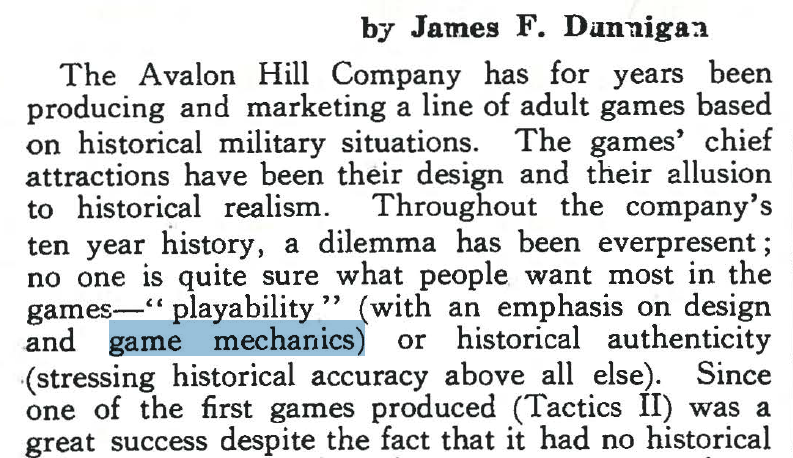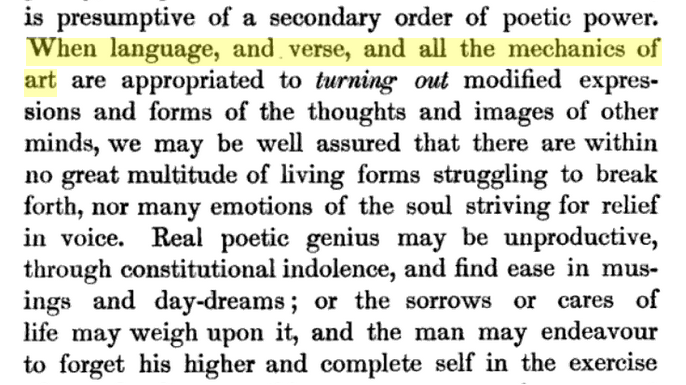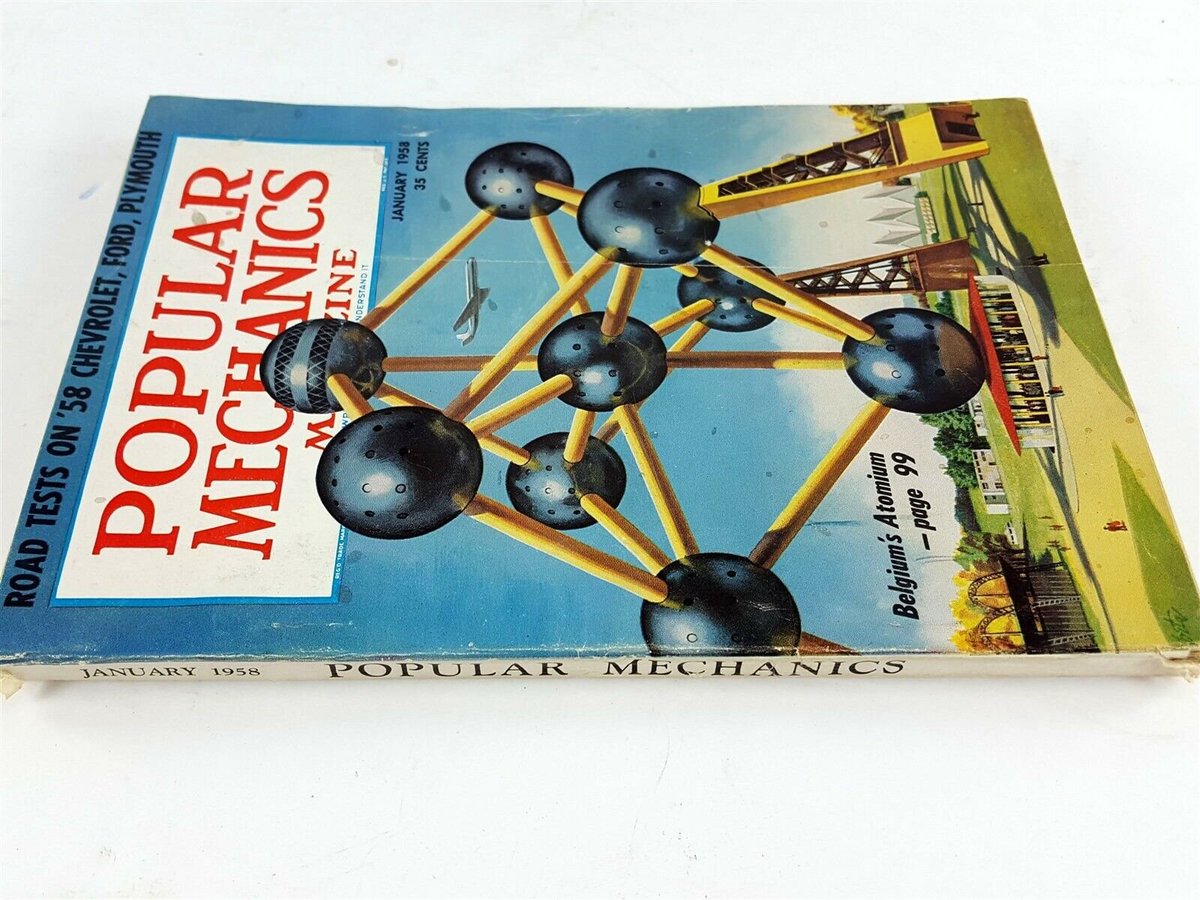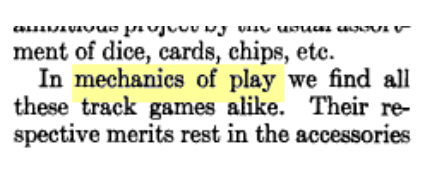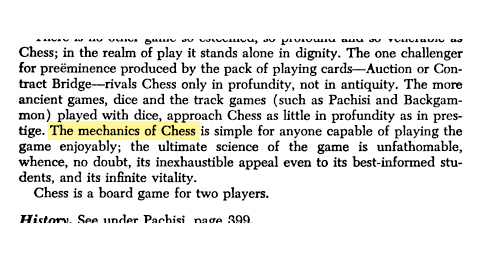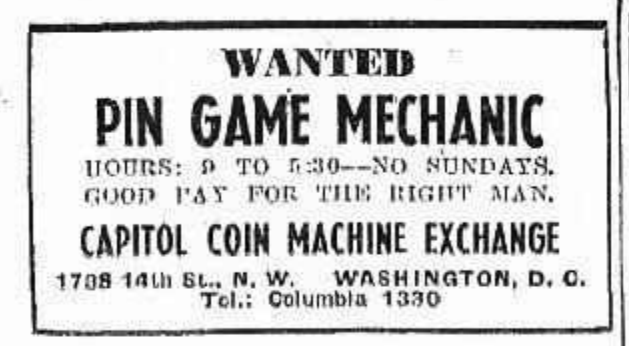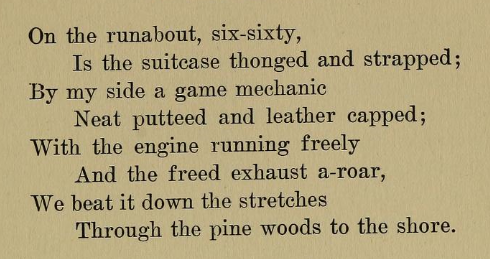Who& #39;s up for a Sunday thread?
I have an update on the origin of the term "game mechanics." When I did a piece last year on the etymology of various video game terms, "game mechanics" led to some additional questions.
I have an update on the origin of the term "game mechanics." When I did a piece last year on the etymology of various video game terms, "game mechanics" led to some additional questions.
VIDEO writer Arnie Katz was an avid wargamer, so I stopped at "game mechanics" and "play mechanics" coming from wargaming magazines.
More specifically, they first appeared in articles by game designer Jim Dunnigan for STRATEGY & TACTICS and THE GENERAL as far back as 1967.
More specifically, they first appeared in articles by game designer Jim Dunnigan for STRATEGY & TACTICS and THE GENERAL as far back as 1967.
Some people ask "shouldn& #39;t it be & #39;game mechanisms,& #39; not & #39;mechanics& #39;?"
Here& #39;s the thing. "Mechanics" as a word that means "how things work" is not a recent development. According to Oxford, it goes back to at least the 19th century.
Here& #39;s the thing. "Mechanics" as a word that means "how things work" is not a recent development. According to Oxford, it goes back to at least the 19th century.
There& #39;s a long history of talking about the mechanics of *things.* Theoretical mechanics, quantum mechanics, mechanics of geometry, mechanics of engineering.
POPULAR MECHANICS isn& #39;t a magazine about machine workers who are very well-liked. It& #39;s about science and technology.
POPULAR MECHANICS isn& #39;t a magazine about machine workers who are very well-liked. It& #39;s about science and technology.
When Jim Dunnigan used "game mechanics" and "play mechanics" in wargaming, the phrase "the mechanics" was already in heavy use by that community when talking about games. He just made it more specific.
And referring to "the mechanics" goes even further back, to board games.
As far as I can tell, it was first applied to board games by GAMES DIGEST& #39;s Ely Clubertson in 1938, where he describes "the mechanics and tactics of Go" and even uses the phrase "mechanics of play."
As far as I can tell, it was first applied to board games by GAMES DIGEST& #39;s Ely Clubertson in 1938, where he describes "the mechanics and tactics of Go" and even uses the phrase "mechanics of play."
Ely Culbertson continued using this word in his work, such as his 1950 book CULBERTSON& #39;S HOYLE: THE NEW ENCYCLOPEDIA OF GAMES, WITH OFFICIAL RULES.
When tracking down early uses of words, you sometimes run into amusing coincidences. Like ads in BILLBOARD from 1944 asking for a "game mechanic" (a machine worker for a game), or a story from 1914 about a "game mechanic" (a machine worker who is game, i.e. ready for anything).
One of the most compelling coincidences I found was a reviewer from 1833 referring to a "play-mechanic" — a mechanic of a stage play.
If "play-mechanic" had become a common phrase in theatre, I could almost see Jim Dunnigan borrowing it from there.
But it makes much more sense that he simply took an already common phrase — "the mechanics" — and made it more specific, using "play" and "game" interchangeably.
But it makes much more sense that he simply took an already common phrase — "the mechanics" — and made it more specific, using "play" and "game" interchangeably.
I asked Jim Dunnigan if he remembered coining those terms or if he got them from elsewhere, and he couldn& #39;t recall. He thinks he might& #39;ve gotten them from someone at Avalon Hill, but we& #39;ll never know for sure.
If you enjoy geeky history like this, never miss one of my deep dive threads by signing up for my monthly newsletter, where I compile the monthly threads and link you to other cool things I saw. https://criticalkate.substack.com/ ">https://criticalkate.substack.com/">...

 Read on Twitter
Read on Twitter
